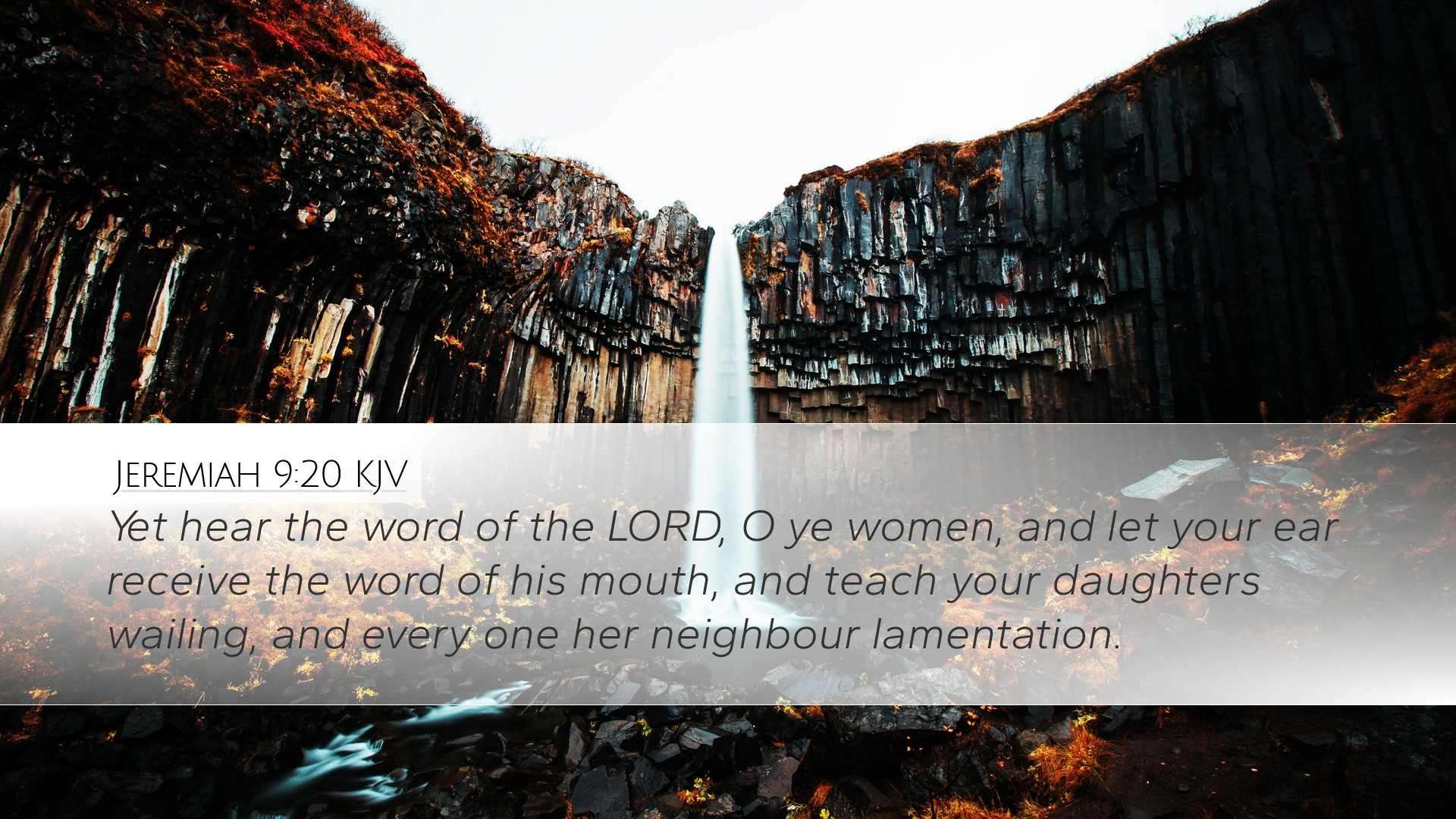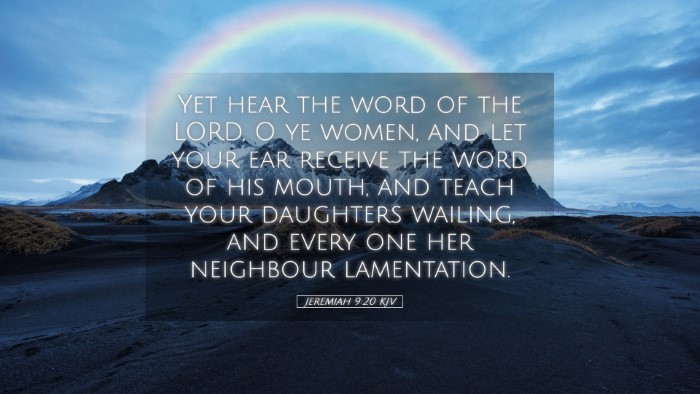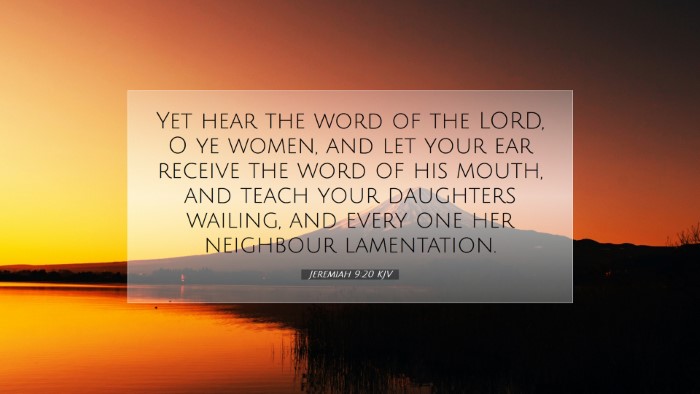Commentary on Jeremiah 9:20
Verse Text: "Yet hear the word of the LORD, O ye women, and let your ear receive the word of his mouth; and teach your daughters wailing, and every one her neighbor lamentation." (Jeremiah 9:20 KJV)
Introduction
Jeremiah 9:20 serves as a poignant call to mourning in the midst of impending calamity. This verse, rich in emotion and significance, urges women to take a central role in both receiving and disseminating the dire message of God regarding the plight of Jerusalem. Below, we explore insights from various public domain commentaries, including those of Matthew Henry, Albert Barnes, and Adam Clarke, to elaborate on the spiritual and theological implications of this verse.
Contextual Background
The book of Jeremiah is set against the backdrop of the decline of Judah and the approaching Babylonian captivity. Jeremiah, often referred to as the weeping prophet, conveys God’s heartache over Israel’s unfaithfulness and the subsequent judgment. Understanding the socio-historical context enriches our interpretation of Jeremiah 9:20, highlighting the urgency of the message and the role of women in the community.
The Role of Women in Mourning
Henry remarks on the profound duty that is placed upon women in this context. During times of tragedy, it was customary for women to take up the role of mourners. This cultural aspect demonstrates the significance of communal sorrow and the responsibility of women as caregivers and keepers of tradition. Women's voices are vital, and their role in teaching lamentation reflects a profound wisdom passed through generations.
Teaching Lamentation
- Divine Instruction: The Lord instructs not just any group, but women specifically, indicating that they have a unique role in the community.
- Communal Grief: The act of wailing and lamentation is communal, signifying collective sorrow. Barnes attests that this is not merely for personal grief but also for the community’s recognition of its collective sinfulness.
- Spiritual Awakening: Clarke emphasizes that this mourning is intended to awaken the people to the seriousness of their sin and the impending judgment from God.
Theological Implications
This verse brings forth significant theological themes which can be explored in depth:
Sin and Judgment
Both Henry and Clarke suggest that this call to mourning is a direct response to the people's sins. The lamentation is not for trivial matters; rather, it acts as a serious acknowledgment of the gravity of their sins against God. The need for lamentation highlights the importance of recognizing sin and its consequences in the life of faith. Their unwillingness to mourn for sin ultimately leads to their downfall.
The Power of Teaching
The instruction to “teach your daughters wailing” speaks volumes about the responsibility of passing on spiritual truths. Barnes notes that teaching the next generation about mourning for sin and expressing grief is crucial. The act of teaching lamentation symbolizes a spiritual education that can guide the faithful toward repentance and restoration.
The Nature of God’s Communication
This verse showcases God’s desire for His people to heed His word. The command to listen and teach implies a two-fold relationship: divine communication and human response. Clarke points out that God’s words are to be received and shared; there is an expectation that the people will respond to His revelation with appropriate action and emotion.
Practical Applications
- Embracing Mourning: We must learn to embrace moments of lamentation within our communities, recognizing that grief may be a necessary step toward spiritual restoration.
- Teaching Future Generations: There is a critical need to instruct younger generations in understanding the weight of sin, the consequences of rebellion against God, and the beauty of redemption.
- Active Listening to God’s Word: Pastors and church leaders must emphasize the importance of listening to God's word, being open to His guidance amid trials and tribulations.
Conclusion
Jeremiah 9:20 is a profound exhortation that calls the faithful to recognize the seriousness of sin, the importance of communal sorrow, and the power of teaching within the home. The combined perspectives of Henry, Barnes, and Clarke offer rich theological insights that encourage a reflective engagement with the text. For today's pastors, students, theologians, and Bible scholars, this verse serves as a reminder of the need for authenticity in worship, awareness of communal sin, and the necessity of teaching the values of lament and repentance.


